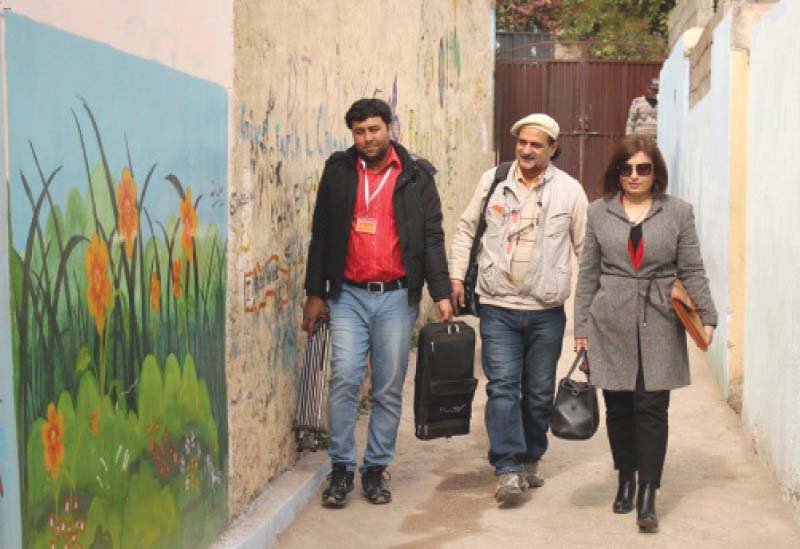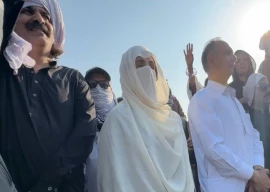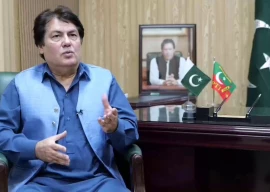
Lawmakers, activists and social scientists weighed in on the issues faced by women in South Asia, and particularly in Pakistan, in the documentary made by noted activist, artist and curator Nageen Hyat.
‘Posheeda Qadam’ (hidden footsteps) — highlights the history of the struggle of women against domestic violence, cyber violence and discriminatory laws that affect women and minorities.
The documentary features senators including Raza Rabbani and Sherry Rehman, prominent members of the civil society, feminist activists, as well as the views of acclaimed social scientist Kamla Bhasin from across the border.
The film speaks of the dilemmas in South Asia that increase problems for women every day. It also focused on cyber violence and how deep their consequences go.
Hyat spoke to The Express Tribune about why it was important to document the struggle of women for justice and equality, and of the challenges she faced, while documenting them.
Q: Why do you think making this documentary was important?
Nageen Hyat (NH): We are a nation that is constantly complaining, but now is the time when we need to stop that and do something about issues that affect us. We need to go forward and do things; bridge the gap from street protests to actually demanding for rights. And that can be done through creating awareness about discriminatory laws and inequality so that the public knows precisely what their rights are in order to be in a position to demand them.
Q: How does this documentary highlight issues women face?
NH: The beauty of this documentary lies in the fact that it not only represents Pakistani women, but actually South Asian women, since I have spoken to Kamla Bhasin and other representatives from other countries. This makes one realise that women across the region are facing similar, if not the exact same, issues.
Q: What challenges did you face, while documenting this?
NH: The biggest challenge was to arrange speakers such as Bhasin, Sherry Rehman, Senator Raza Rabbani and others, and get them to speak on such a sensitive issue. Another great challenge was to give them the comfort and ease to speak candidly about these issues.
Q: How do you plan to get the message across?
NH: The idea behind making this documentary was to use the power of film to create awareness about these serious issues. However, I also realise that I cannot invite the entire community to a documentary screening. A member of the audience suggested that this should be played at theatres before a movie begins, and I do feel like that can be done.
I am ready for any collaborations and third parties who are interested in screening the documentary. I am going to use the power of social media, particularly YouTube now that it is unblocked, to ensure that the documentary is seen by the masses. This is not a commercial project.
Q: How important is the violence against women bill passed by Punjab Assembly?
NH: The bill passed by the Punjab Assembly is a proactive and brave step to create a level of equality across genders. The crucial aspect is of course the implementation and the sensitisation of the police and lower courts by using assertive methods to enable easier access to justice for women particularly those who are underprivileged and marginalised.
Q: What is your message for the International Women’s Day?
NH: Our concerns are the significant discrimination and under representation of women’s participation in political and public life. The reasons are multi-faceted and stem from social, economic and political issues and negative stereotypes about women in an area with a retrogressive and patriarchal mindset. There is exclusion of women in positions of power, governance and judiciary - only a small number are in senior positions in spite of being 50 per cent of the population.
Published in The Express Tribune, March 7th, 2016.








1732643921-0/4548774-1403918848-(1)1732643921-0-270x192.webp)








COMMENTS
Comments are moderated and generally will be posted if they are on-topic and not abusive.
For more information, please see our Comments FAQ